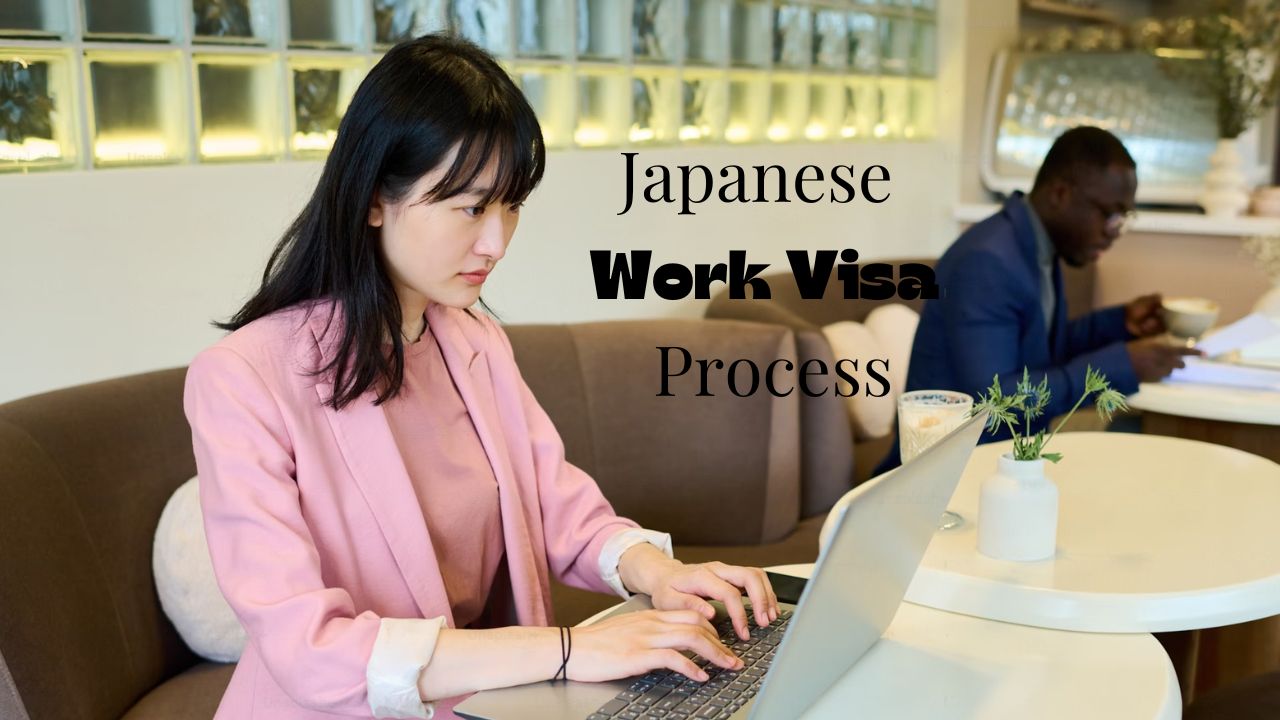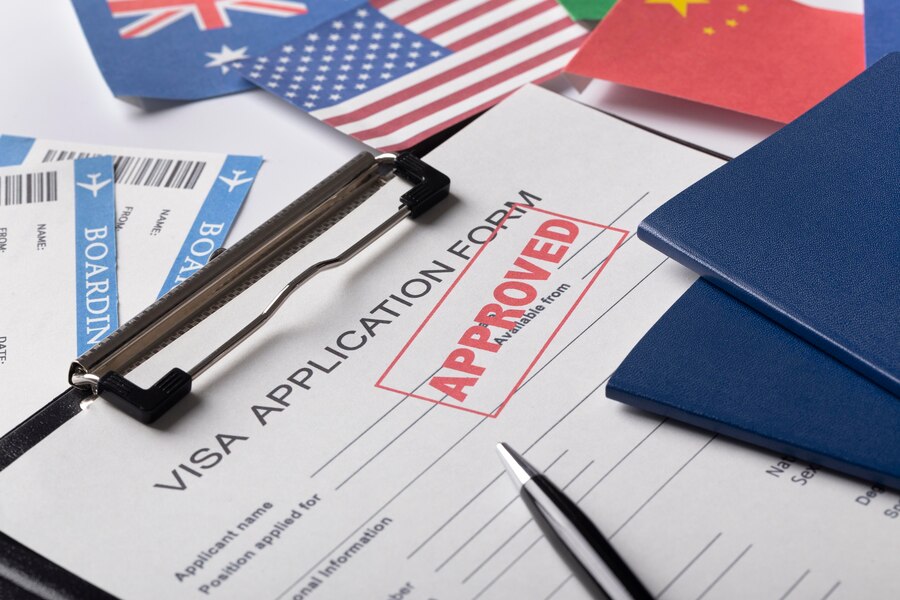Some of the most common frustrations that many applicants express are that Japanese work visa procedures are “unclear and complicated.” Due to this, most applicants will end up dropping the process and go for jobs in other countries such as Canada, USA, Australia, New Zealand and the UK.
The Japanese economy is consistently in need of skilled labor from international talents; hence, the government relaxed visa regulations and introduced new ones to reflect current skilled labor demands.
Based on this, the Japanese government permit organizations in Japan, to recruit foreign workers through its various work visas.
The work visa is necessary for anyone planning to take up employment in Japan, whether it’s a short-term or long-term job. Without a work visa, individuals will not be able to legally work in Japan and may face deportation or other legal consequences.
In this article, we will guide you through the Japanese work visa process and provide you with the essential information you need to know before embarking on your journey.
Types of Japanese Work Visas
1. Specialist in Humanities/International Services Visa
Scholars and highly skilled workers who wish to work in Japan for a short to medium period (i.e., 1–5 years) can apply for the Specialist in Humanities/International Services visa.
To obtain an SHIS visa, an applicant must possess academic and work experience related to the job description of the work they will be performing at their place of work in Japan.
The exact type of academic and work experience needed will depend on the details of the work to be performed; however, the following academic or practical experiences are required.
It is extremely important to show a correlation between the work to be performed in Japan and the applicant’s academic and practical experience. If such a correlation is not deemed to be high enough, there is a high likelihood of the application being rejected.
The SHIS visa is relatively easy to secure and has a wide range of permitted activities both within and without the academic field.
As with the Engineer/Specialist in Humanities visa, once secured, the SH/IS visa benefits from relatively insensitive adjustments for extension or renewal and can be renewed for up to a total of 5 years without significant concern.
2. Skilled Labor Visa
A skilled labor visa allows employers to sponsor the acquisition of valuable skills from foreign countries and allows people from foreign countries who excel in specific fields to find work in Japan.
It’s a mutually beneficial system, but the number of people who can apply for a skilled labor visa is currently limited.
To qualify, applicants must have specialized skills or expertise in fields such as engineering, information technology, or healthcare.
The application process typically involves securing a job offer from a Japanese employer, who will act as a sponsor, and obtaining a Certificate of Eligibility (COE) from the Japanese immigration authorities.
The COE is a prerequisite for applying for a visa at the Japanese embassy in Nigeria. Additionally, applicants must provide documentation proving their qualifications, work experience, and health status.
3. Intra-Company Transferee Visa
For those wishing to work in Japan, a Japanese Intra-Company Transferee Visa (ICT) is a consideration. As one of its benefits, there is no need of approval to undertake a new role.
The In-Company Transferee Visa is highly recommended in the situation of foreign staff arriving from overseas to the mainstay Japanese head office. As long as they are prepared to transfer these employees to a new country, Japan.
The Intra-Company Transferee visa category is for an employee who worked in a managerial position, specialist position, or technical position before entering Japan and is transferred to an affiliate in Japan to work in a managerial position, specialist position, or technical position.
Note that the intra-company transferee visa can be renewed up to five (5) years, but it cannot be renewed beyond that. In addition, the intra-company transferee visa is different from the “Engineer” and “Specialist in Humanities” visa statuses and has different requirements.
One of the perks of applying for an intra-company- transfer visa is that there won’t be need to start job hunting, as you are employed already.
However, it may not be good for starters, as they will only be able to work at the specific branch or office they are transferred to.
4. Highly Skilled Professional Visa
Japan’s Highly Skilled Professional (HSP) Visa aims to attract global talent in advanced sectors to boost innovation and economic growth. It targets professionals in fields like academic research, specialized technical activities, and business management.
The HSP Visa operates on a points-based system, evaluating applicants on criteria such as academic background, professional experience, salary, and age. Higher points are awarded for advanced degrees, extensive work experience, and proficiency in Japanese.
To qualify for the highly skilled professional visa, applicants must be foreign nationals who are eligible to work in the fields of research, research guidance, or education at a Japanese university.
They must be employed under a contract and receive a salary for the work (e.g., a visiting research scholar, a program-specific researcher, etc.).
To calculate eligibility, points are allocated to the applicant based on the characteristics of their employment activities. The points are allocated in categories such as “academic background,” “professional career,” “annual salary,” etc.
If the total number of points allocated is 70 or greater, the applicant will be deemed a highly skilled foreign professional and will be granted preferential immigration treatment.
“A spouse or child of a highly skilled professional can apply for a general visa as a dependent. A spouse who intends to work in Japan, parents, or house servants of a highly skilled professional can apply for a designated activities visa.
Japanese Work Visa: Applying With a Certificate of Eligibility (COE)

For applicants residing in Nigeria (third-country visa applications), they will need a valid CERPAC card or a valid residence permit at the time of the visa application. Applying for a Japanese work visa in Nigeria involves several steps:
1. Secure a Job Offer
You need to get a company that will hire you, as they will be your visa sponsor.
Certificate of Eligibility (CoE): Your employer in Japan must apply for a Certificate of Eligibility (CoE) from the Immigration Bureau of Japan on your behalf.
This document is crucial for your visa application and certifies that you meet the requirements for entering Japan. Note that the letter prepared by the applicant is not accepted.
It can take up to 3 months to approve the COE. Once your COE is approved, you will get it through mail or probably an electronic COE, and then you can apply for the visa.
2. Gather Necessary Documents
Visa Checklist
i Visa application form with 1 photo
- The original is required.
- Please fill out every field of the visa application form accurately and completely. If the item is not applicable, please fill in [N/A].
- The applicant must sign by himself or herself on the second page of the visa application form, and the signature must correspond with the signature on the passport.
- A parent should sign for a minor applicant who cannot sign.
- A scanned signature is not acceptable.
ii. Passport Photo
- The original is required.
- 45mm × 35mm, with a white background, taken within 6 months.
- The photo has to be glued to the space provided on the visa application form. Do not use a stapler.
iii. Flight Reservation Slip
- A photocopy is acceptable.
- The purchase of a flight ticket is not required.
- The flight reservation slip must include the name of the passenger, airline company name, flight number, departure date and time from Nigeria, arrival and departure date and time for transit, arrival date and time in Japan, and departure date and time from Japan.
iv. Certificates of Eligibility
Additional documents, if requested by the Embassy
v. A copy of Passport Data
- A valid passport and a copy of the passport data page
- The passport must be original.
- A passport must have at least one blank page.
- A passport must have sufficient validity until the end of the intended period of stay in Japan.
When traveling from Nigeria to Japan, there may be restrictions on the remaining period of the passport in transit countries. Regarding this, please be advised to contact the airline companies you are planning to use well in advance.
3. Submit Application
Submit your visa application and the required documents to the Japanese Embassy or Consulate in Abuja or Lagos, Nigeria.
Japanese Embassy in Abuja
Address: 9 Bobo St, off Gana Street, Maitama, Abuja.
- Tel: +234 (0)90-6000-9019
- Consular Section: +234 (0)90-6000-9099.
Japanese Embassy Branch Office, Lagos.
Address: Plot 24/25 Apese Street Victoria Island.
Telephone:
(+234) (1) 261-3797 / 4929 (+234) (1) 261-5984 / 6827.
4. Appointment Booking
Important notes before booking:
- Applicants are required to contact to request an appointment at least 15 working days before the intended date of departure.
- Applicants are required to submit their visa applications at the Embassy at least 10 working days before the intended date of departure from Nigeria.
- If your intended date of departure from Nigeria is less than 10 working days, the embassy will not accept your visa application. In this case, please reschedule your travel date to Japan.
- Applications cannot be accepted more than 3 months before the intended date of departure from Nigeria, but they can be accepted approximately 2 months before the intended date of departure from Nigeria.
- Visa application is by appointment only, while pickup is not.
- Please note that visa applications are not online.
- All visa applications must be submitted in person by the applicant at the Embassy of Japan in Abuja.
- Appointment scheduling is done via email only.
5. Pay the Visa Fee
As of April 2, 2024, the Japanese visa fee for Nigerians is N12,500
Note that the Japanese Embassy accepts only cash. Applicants must have the exact amount ready.
- Visa fees will be required for pick-up only.
- If the visa is not issued, no fees are required.
Read also: Visa Scams: What Nigerians Need To know And How To Avoid Them
Conclusion
The Japanese work visa process can be described as a very strict and demanding process. In the process of getting a work visa for Japan, the applicant must prove his or her worth, plan, and take all the necessary steps required to be granted the work visa.
It may at times appear as a very complicated process, but its core aim is to justify why only competent people should be allowed to work in the country.
If done right and following the set procedures and regulations, getting a Japanese work visa is worth the effort for anyone seeking to work in Japan.






